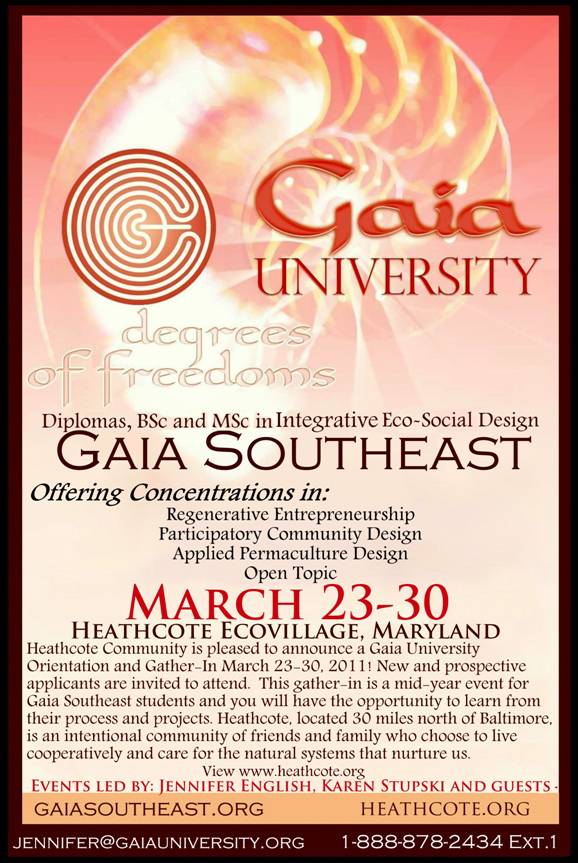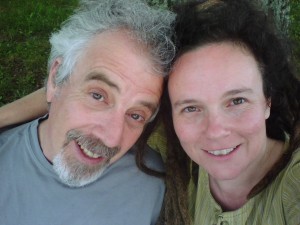If You Missed Saturday’s Gaia U Open House, Here’s Your Second Chance!
Come to our Gaia University Open House!
March 5, 2011, 7:30 – 9:00 PM at Heathcote Community
Come learn about Gaia University, an institution for higher learning with a unique approach. The students (called associates) are able to earn accredited Bachelors & Masters degrees and Graduate Diplomas whilst being actively engaged in self and planetary transformation and ecosocial regeneration. The Open House will provide an overview of Gaia University’s action learning methodology and our programs in Integrative EcoSocial Design with concentrations in Applied Permaculture Design, Regenerative Entrepreneurship, Participatory Community Design, and Open Topic.
Heathcote is partnering with Gaia Southeast to host a Gaia Gather-In March 23-30, 2011. Prospective applicants may attend the whole gathering or audit individual days. Find out more at the Open House!!
Please RSVP by Mar. 4 by calling 410-357-9523 or email education@heathcote.org.
From Wren: I attended last Saturday’s Gaia U Open House. I continue to be amazed at the scope and effectiveness of Gaia U. It brings our alternative values into practice, while educating alternative-minded students in hands-on, exploratory, real world ways. It’s a great alternative to the conventional classroom! I hope you can make this Open House or connect with Gaia U through its website or other means! —WT
Subscribe to this blog's RSS feed
A Global Open Space Geared Towards Action
From Wren: The World Social Forum is a growing event that happens concurrently with The World Economic Forum. WSF intends to turn the tide of “neo-liberal globalization,” (free market capitalism, with slavery, child labor, imperialism and environmental injustice).
I just received this email reporting on the World Social Forum in Dakar, Senegal. Click here for extensive photo coverage.
C.T. Butler and I had planned to attend it and the preceding IndyMedia Convergence as consensus trainers, but our invitation was relatively last minute and funding didn’t happen in the short time. We’re expecting our friends to return in the next few days with exciting stories! Until then I share this, unedited:
—WT
From Sven Giegold—
Just like last year’s World Social Forum held in Belem (Brazil), the
Forum in Dakar took place under the impression of the deep crisis of
neoliberal globalization. Whereas the economy has recovered for some
time already in some regions of the world, it started to do so recently
in others. But all that cannot hide the existence of deep social,
economic and ecological problems. The WSF provided a meeting point for
a broad range of individuals originating in movements and civil society
who hope to overcome neoliberal globalization: Either by establishing
social and ecological regulations, for instance by implementing a
“Green New Deal”, or by breaking with capitalism in general. This range
of political alternatives characterized this WSF, just as the
alterglobalist movement in general. In the run up to Dakar, Gustave
Massiah (2011a & 2011b)* wrote a widely acknowledged book and published
12 theses on the alterglobalist movement.
Whereas the debate in Belem had been dominated by discussions over the
crisis of civilization and fundamental alternatives to globalized
capitalism, such as the concept of “buen vivir” (“good living”) this
was different in Dakar. This year, the agenda was dominated by the
peaceful revolutions in Egypt and Tunisia, and the particular African
context with its own topics. Already the impressive opening march made
clear that this would not be a forum of big overarching claims and
slogans. The organization committee succeeded in mobilizing a big
variety of social- and grassroots-movements from all over West Africa.
Caravans had been travelling across all neighbour countries, converging
to Dakar from different directions. On the one hand they provided cheap
transportation, on the other hand they called attention to the WSF. And
they did not come with red, green or any other banners, but with their
own concerns: land grabbing in order to fulfill the needs of the global
consuming class in times of increasing scarcity of arable land.
Protection of local seeds and local production from control of
multinational companies and agricultural subsidies. Sea grabbing by
industrial fishing on the cost of family-run fisheries.
Especially the strong African women’s movements were eye-catching,
regarding land use rights, fisheries as well as participation of women
in conflict resolution on the African continent. Finally, fortress
Europe with its inhuman “frontier protection” regime, was a big issue.
Senegalese students and others confronted European participants over
and over again: How is it possible that you are able to come here
without a visa, whereas we do not even have a chance of having one?
Global freedom of movement, as being part of global civil rights, was
claimed consistently. A Migration Forum adopted a “Charta of Migrants”
in the run up to the Forum (http://fsm2011.org/fr/charte-mondiale-des-
migrants ).
In short: new and old forms of colonialism were the decisive topics of
the WSF. Fortunately, there was no arrogant western critique or bashing
of African grassroots movements this time, in contrast to the 2007 WSF
in Nairobi. This was partly favoured by the less obvious appearance of
religious groups – either Christian or Muslim -, so that religious
intolerance, popular in some left currents, was less provoked. However,
the engagement of Catholic and Protestant development organizations can
be seen as positive in enabling numerous of their partner organizations
from the global South to participate in the WSF. The “German Protestant
Development Service” presented its study on EU-West African fisheries
cooperation, which massively affects the right on food of local
fishermen and their families along the coast. Left parties and labour
unions were not as visible as at Forums in Latin America and 2003 in
Mumbai/India. The only German union participating in the WSF was the
GEW. Big NGOs were present numerously, but did still not dominate the
Forum. The participation of the global alterglobalist movement mirrored
its regional spread on different continents as well. Whereas Europeans
and Latin Americans were very visible, alongside the in numbers
dominating Africans, there was very few Asian participation apart from
India. North American NGOs were under-represented in terms of numbers
as well.
Unlike in Latin America, no African government relates politically to
the alterglobalist movement. The revolutions in Tunisia and Egypt
therefore became the point of reference concerning political power of
the Forum. A dozen of Social Forums held in the Maghreb region had
helped to prepare change. Nevertheless, it would be an exaggeration to
see the fall of the two antidemocratic regimes as a success of the
alterglobalist movement. But a lot of organizations associated with the
process of World Social Forum want to travel to Tunisia around the 20th
of March. The European network of Attac is preparing a delegation in
cooperation with Attac Tunisia.
The new methodology applied at WSF proved to be of value: One day of
events dealing with African topics was followed by two days of events
self-organized by participating organisations. Opening and final events
were the only big and centrally organized events. Just like in the
years before, there were numerous events dealing with the same topics
because the organizers did not know each other in advance.
During the last one and a half days, 38 action assemblies were taking
place. Each of them dealing with one relevant topic. They turned out to
be a big success throughout. Resolved common actions were frequently
based on preparatory work of global networks, that were initiated at
WSF some years ago. Those networks – often running a little secretary,
mailing lists and regular phone conferences – are one of the biggest
success of past World Social Forums. And one of the most overlooked
ones at the same time. The World Social Forum can therefore be seen as
a Global Open Space gearing towards action.
As there was no systematic documentation of the results of the 38
action assemblies, I will only mention some of the numerous results.
They are politically only binding the participants, not the World
Social Forum as a whole. During a big event with 300 participants
dealing with land grabbing, a whole clutch of activities was agreed
upon and a declaration was adopted
(http://farmlandgrab.org/post/view/18159 ).
In doing so, it became obvious that the fight of traditional land use
rights, and with it the right to food, have to be won on a local level.
Whereas consumerism of the global rich, interests of multinational
companies, and powerful states are the cause of land grabbing in the
global South, local authorities and nation states from the global South
play a decisive role as well. They should defend peasant’s rights
instead of serving export agriculture in an often corrupt manner.
This was also demonstrated during the conference “land and sea
grabbing” which was organised by our Green group in the European
Parliament and took place at the edge of WSF. We have to take advantage
of the relevance of the very topic at WSF in order to impose pressure
upon illegitimate practices of western companies and EU trade policy,
which negatively affects small producers in the Global South. At the
same time, we have to strengthen fair trade and social movements
putting pressure on their governments.
The mobilization agenda for the upcoming months became obvious
throughout different meetings. G8 and G20 summits are going to take
place in France this year. Sarkozy wants to present himself as an
alterglobalist, failing with his agenda because of “other evil states”.
At the same time he is slowing down EU regulation processes regarding
the financial markets and the introduction of a European financial
transaction tax. It seems to be clear that French movements will not
let pass this obvious cheap strategy. The action assembly dealing with
G8/G20 adopted a corresponding resolution (http://gruenlink.de/54 ). An
organization committee with networks all over Europe has been created
in France. A strong mobilization towards Deauville in March (21st-22nd)
and Cannes in autumn (31st October until 5th of November) can be
expected. And there will be another preparatory meeting, taking place
on the 26th and 27th of March in Paris. Withstanding strong existing
tensions between NGOs and social movements relating to the topic of
climate protection, seems to be possible.
Furthermore, a lot of movements are heading to South Africa where the
next World Climate Conference (COP-17) is going to take place from 28th
of November until 9th of December in Durban. Even more attention is
given to the Rio-+20-Earth Summit which is going to be held from 14th
until 16th of May 2012. Realisation of a “People’s summit” as parallel
event for civil society is planned in Rio. It is a politically
interesting coincidence that both conferences dealing with climate
protection and biodiversity are going to be held in booming countries.
Both governments emerged from social movements. At the same time they
did not cover themselves in glory regarding ecological policy. How to
fight against ecological and social crisis with a common economic
strategy is going to be the essential subject. All in all there will be
a chain of big mobilizations for the alterglobalist movement:
Deauville, Cannes, Durban, Rio.
Unfortunately, the Forum suffered a lot from organizational problems.
The presidency of the university had changed recently and the new
president did not see himself bound to former agreements. As a
consequence, the WSF had to be held in addition to the regular
university schedule, which led to double usages of rooms. It lasted
quite a long time until tents were built up. But even then, changes of
rooms were not announced sufficiently. As a result, many events, that
had been carefully planned in advance had to be cancelled. Small
organizations were affected in the first place.
Nevertheless, all those problems could still not destroy value and
success of the Forum. The International Council of the World Social
Forum, who met in the aftermath of the Forum, accordingly rated it as a
success. Globally successful networks and their activities demonstrate
the necessity and benefit of the WSF. Anyhow, the Forum is neither
running out of topics, nor repeating contents without progress, as
often claimed. World Social Forums are developing regionally as well as
thematically. Even if it is true that there is still no – and will not
be an – overarching, common theory of social movements and independent
civil society. The discourse of an alleged exhaustion is based on a
wrong desire of unity and one big, unifying “-ism”. But the lack of
such an ideology must not necessarily be seen as weakness – it rather
proves the democratic strength of the alterglobalist movement.
In the Council, it was rightly criticised that a state representative -
Bolivian President Evo Morales – was given the honour to open the
global Forum of civil society. This had not been agreed on with the
Council in advance. Furthermore, there are accusations that the
Moroccan and Algerian government co-financed the WSF in return for
political concession on the Western Sahara issue. These allegations
have to clarified fully. Finally, there were critical inquiries by
Indian and Brazilian participants regarding the process of European
Social Forum. As a matter of fact, the process of European Social Forum
is in trouble for years. In contrast to the World Social Forum, linking
up big NGOs, labour unions and radical social movements, failed so far.
Almost all big organisations have left the process, which is now led by
a small and insufficiently legitimised preparatory committee. It is a
good sign, that has now been noted and is criticized from the Global
South.
* Gustave Massiah (2011a): Une stratégie alterglobaliste, Paris: La
Découverte.
Gustave Massiah (2011b): Les douze hypothèses d?une stratégie
alterglobaliste, http://www.cetri.be/spip.php?article2060&lang=fr
You can find my 150 pictures taken at World Social Forum here.
———————————————
Sven Giegold, MdEP
http://www.sven-giegold.de * facebook/twitter: sven_giegold
__________
Please join our Hippie Chick Diaries fan page on Facebook!
Too Busy for The L-Word
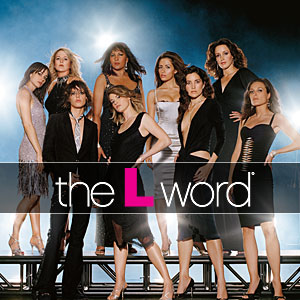 One thing that is the same at Heathcote, my Intentional Community, as in the wider world is our tendency to over-schedule and over-commit.
One thing that is the same at Heathcote, my Intentional Community, as in the wider world is our tendency to over-schedule and over-commit.
It’s a predictable comedy when we whip out our calendars at meetings and try to find a date for any outing, celebration or committee work. We’re certain to settle on some compromise date that leaves some people falling off the edges, “I can’t be there, but you all have it without me…”
Even as I shift my own projects, saying good bye to Open Classroom and selling off our fair trade retail venture Heathcote Earthings, my freed-up weekends have somehow gotten scheduled.
Nature abhors that vacuum; Wherever it appears, here comes stuff flying in!
Last summer, I kept the Communities Conference at Twin Oaks on my calendar for months. Finally I would get to go, represent Heathcote, market ZEGG Forum to Communities, network, play, eat, etc.
But wait! Along came Mother Earth Harvest Fair, holding an organizing meeting on the same weekend, conflicting with a great gathering at which I could have marketed…Mother Earth Harvest Fair.
Notice the subtle difference in saying, “This is when the meeting is,” versus, “When can you meet?” In either case, I expect you’ll have people dropped off the edges. But if I’m invited to find a date that works for me and that becomes difficult, I can opt to serve the higher good with my, “You all meet without me.” If I’m informed of a date and I have a conflict, I’m faced with breaking one commitment or the other. It’s a subtlety of inclusion and empowerment, I know.
So…I had low expectations when I opened my Netflix in the Heathcote kitchen and announced to the random Heathcoters within earshot, “Hey, I have season one of The L-Word! Who wants to watch?” Karen, my sister in queerness, zoomed up to answer me. “I’ve always wanted to watch that but I haven’t gotten around to it!”
That was the case with me, as well. Two over-scheduled gurrls, living in the woods who haven’t gotten around to checking out the now-canceled L-Word since it first aired in 2004…Ah…Sad.
“Can you watch it tonight?” I cringed, not daring to hope. I could see this collaboration log jamming my Netflix queue for the next month.
“Well, I have one thing I really have to do, but after that, maybe eight o’clock?”
What just happened? Did she say tonight?
She was clearly trying to calm the series of faces I was making, but I took the offer. And it only took until half way through dinner for Karen to warn me of her second thoughts. “I’m really feeling tired,” And, on schedule, half way through dinner cleanup she recanted, “I really want to see it but I know I’m not going to make it through. I’m just wiped out…”

You can put the tea in Ellie, my favorite mug. It has a band of runes that spell the four elements. I don't see that on The L-Word...
Watching on my own, I found out this land dyke wasn’t missing anything. I bailed after three episodes; I just wasn’t hooked. I can’t relate to rich lipstick sisters and their suburban problems. I’m still hoping for some Princess Charming who doesn’t know she has motor oil behind her ear (so cute) to saunter over here and haul this goat chow up the hill, and then make me some ginger nettle tea and massage my aching joints…between her many committee meetings.
Please join our Hippie Chick Diaries fan page on Facebook!
Community Plus Partner: Integrating Significant Others
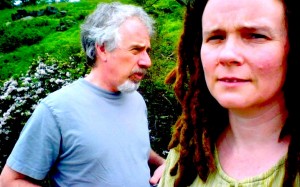 Relationships, polyamorous or monogamous, are complicated enough. Imagine if all your friends had to reach consensus on whether you and your sweetie(s) could move in together. Well, actually, your friends might relish that power. Anyway, welcome to the alien terrain in which my partner and I find ourselves. I live at Heathcote Community and in order for my partner to share my home, he has to apply and be accepted as a member of the Community, a process that can take eight months or more to be finalized.
Relationships, polyamorous or monogamous, are complicated enough. Imagine if all your friends had to reach consensus on whether you and your sweetie(s) could move in together. Well, actually, your friends might relish that power. Anyway, welcome to the alien terrain in which my partner and I find ourselves. I live at Heathcote Community and in order for my partner to share my home, he has to apply and be accepted as a member of the Community, a process that can take eight months or more to be finalized.
Even though Heathcote is a mixture of couples and singles, this is not an issue we’ve often faced, considering a membership application from an existing member’s lover. It’s a very different dynamic than welcoming a couple together or an individual. What happens if someone doesn’t like this new partner?
In our tried and true process, we invite an applicant to visit for 21 days, either consecutively or over time. We get acquainted and discuss the Community’s values, systems, etc. Either the applicant or a Heathcoter can decide at any time that things don’t seem to be a match. But if all seems cozy, we approve the applicant to move in and begin a seven month provisional membership period.
But what if there is an issue, and it’s a community member’s lover? The stakes get much higher. If the Community rejects this applicant, they stand a good chance of losing an existing member, too. Will people feel pressured, in that case, to ignore problems?
 My partner, C.T., has unique worries. He’s a consensus trainer and writer. Will Community members feel self conscious practicing consensus around him, or will they be resistant to his thoughts on our process, assuming that he expects us to do things his way? How to tread lightly and lovingly when you’re something of a big wig in your field…
My partner, C.T., has unique worries. He’s a consensus trainer and writer. Will Community members feel self conscious practicing consensus around him, or will they be resistant to his thoughts on our process, assuming that he expects us to do things his way? How to tread lightly and lovingly when you’re something of a big wig in your field…
Mostly things are smooth sailing so far. But I know everyone’s aware of the new dynamic. We did dance here briefly before when a former partner of mine applied. That was quite a minefield, as that partner truly wasn’t a fit for Heathcote, despite being likable on many levels.
Now C.T. and I aren’t the only ones. Nick’s partner Rachel has applied for membership. Previously, I experienced that moving to a small, rural Community as a single person was a decision to remain single. It seemed very hard to make, maintain and grow connections.
Did something shift? Has the internet negated that isolation? I have had good luck with GreenSingles… Whatever the case, along with the singles and couples interested in Heathcote, we also have partners coming to roost!
—WT
Please join our Hippie Chick Diaries fan page on Facebook!
Gaia University Open House: Feb. 19, 2011, 1-3 PM at Heathcote Community
Come to our Gaia University’s Open House!
Feb. 19, 2011, 1-3 PM at Heathcote Community
Learn about Gaia University, an institution for higher learning with a unique approach. The students (called associates) are able to earn accredited Bachelors & Masters degrees and Graduate Diplomas whilst being actively engaged in self and planetary transformation and ecosocial regeneration. The Open House will provide an overview of Gaia University’s action learning methodology and our programs in Integrative EcoSocial Design and Open Topic. Heathcote is partnering with Gaia Southeast to host a Gaia Gather-In March 23-30, 2011.
Please RSVP by Feb. 16 by calling 410-357-9523
or email education@heathcote.org
Note from Wren: Karen Stupski and I attended some of the first organizational gatherings of Gaia University at The Farm in Tennessee several years ago. I was electrified at the bold notion that our alternative culture could create higher education models that reflect our values and priorities. This is where I first encountered Spiral Dynamics and Action Learning. Gaia U founders Liora Adler and Andy Langford brought a clarity of vision that has propelled ideas into the realities of several learning pathways.
It’s been exciting to watch this university without walls attract more and more students and more sites each year. Whether or not you are planning to enroll, consider this Open House as a way to learn about alternatives you can promote to the next generation, or even people seeking a career change. Imagine majoring in Permaculture or Facilitation instead of Business…—WT
Please join our Hippie Chick Diaries fan page on Facebook!
Zola the AWD Astro Van Needs a New Job
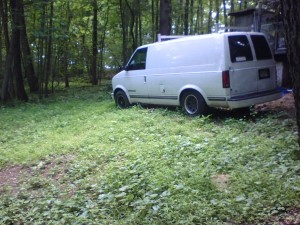 The time has come to sell the Heathcote Earthings business. While we prepare the inventory, tents, tables, covers and displays for listing, we’re selling our ever faithful Zola, the Earthings van separately.
The time has come to sell the Heathcote Earthings business. While we prepare the inventory, tents, tables, covers and displays for listing, we’re selling our ever faithful Zola, the Earthings van separately.
PLEASE SPREAD THE WORD!
Here’s our craigslist text, with a link to the ad at the bottom:
RARE FIND! An All-Wheel Drive Cargo Van with Low Miles!
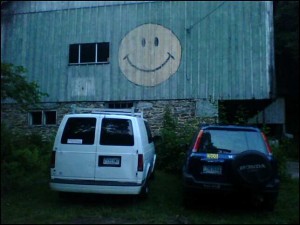 95 Chevy Astro Cargo Van, good condition. AWD, roof rack, some shelving, well maintained. LOW MILES: 97, 326.
95 Chevy Astro Cargo Van, good condition. AWD, roof rack, some shelving, well maintained. LOW MILES: 97, 326.
Brand new tires have less than 100 mi. Includes new full-sized spare. Has a few minor rusting areas and peeling paint, appropriate for a ‘95.
We have loved this workhorse van, which we used (lightly) to transport tents, tables & inventory to monthly festivals. Getting out of the business for health reasons. “Zola” the van must move on to her next occupation.
Selling for blue book value, $2970. More recent photos coming soon.
Located in North Baltimore County area, between Maryland Line & Freeland. 20 mins from Hunt Valley MD and York PA.
write via craigslist or call, 410-458-2310. Call between 9 am and 9 pm.
http://baltimore.craigslist.org/cto/2160079227.html
***UPDATE***We’ve had a few interested parties, but the van is still available!
Please join our Hippie Chick Diaries fan page on Facebook!
STILL A Revolutionary Decision-Making Process
From Wren: I’m reproducing this article from several years ago, with C.T.’s permission. C.T. Butler and I, along with a forming collective of facilitators, have been putting new language to the many paradigm shifts that help practitioners of consensus decision-making succeed in conducting meetings that reflect the egalitarian, non-violent, post-privilege world in which we want to live. This article, nearly twenty years old, shows that, although we’re bringing clarity and new language to the subtle concepts that help consensus succeed, they’re not all new ideas. —WT
If you were asked to pick one thing that might bring about major social, political, and economic change in this country, what would you pick? Most people would pick their favorite issue; be it civil rights, demilitarization, environmental sustainability, or whatever. Some people would choose a system of values to replace the capitalism system such as socialism or the Ten Key Values of the Greens. But few people would even think of changing group dynamics (the way people treat each other when interacting with one another in a group); or specifically, the process they use when making decisions.
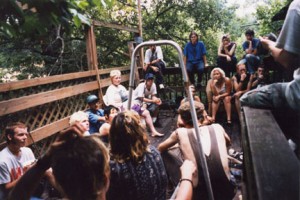 Process is the key to revolutionary change. This is not a new message. Visionaries have long pointed to this but it is a hard lesson to learn. As recently as the 70s, feminists clearly defined the lack of an alternative process for decisionmaking and group interaction as the single most important obstacle in the way of real change, both within progressive organizations and for society at large. Despite progress on many issues of concern to progressive-minded people, very little has changed in the way people treat each other, either locally or globally, and almost nothing has changed about who makes the decisions. The values of competition, which allow us to accept the idea that somebody has to lose; the structure of hierarchy, which, by definition, creates power elites; and the techniques of domination and control, which dehumanizes and alienates all parties affected by their use, are the standards of group interaction with which we were all conditioned. There are but a few models in our society which offer an alternative.
Process is the key to revolutionary change. This is not a new message. Visionaries have long pointed to this but it is a hard lesson to learn. As recently as the 70s, feminists clearly defined the lack of an alternative process for decisionmaking and group interaction as the single most important obstacle in the way of real change, both within progressive organizations and for society at large. Despite progress on many issues of concern to progressive-minded people, very little has changed in the way people treat each other, either locally or globally, and almost nothing has changed about who makes the decisions. The values of competition, which allow us to accept the idea that somebody has to lose; the structure of hierarchy, which, by definition, creates power elites; and the techniques of domination and control, which dehumanizes and alienates all parties affected by their use, are the standards of group interaction with which we were all conditioned. There are but a few models in our society which offer an alternative.
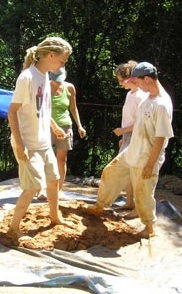 All groups, no matter what their mission or political philosophy, use some form of process to accomplish their work. Almost all groups, no matter where they fall on the social, political, and economic spectrum of society, have a hierarchical structure, accept competition as “natural”, acceptable, and even desirable, and put a good deal of effort into maintaining control of their members. It is telling that in our society, there are opposing groups, with very different perspectives and values, which have identical structures and techniques for interaction and decisionmaking. If you played a theater game in which both groups wore the same costumes and masks and spoke in gibberish rather than words, a spectator would not be able to tell them apart.
All groups, no matter what their mission or political philosophy, use some form of process to accomplish their work. Almost all groups, no matter where they fall on the social, political, and economic spectrum of society, have a hierarchical structure, accept competition as “natural”, acceptable, and even desirable, and put a good deal of effort into maintaining control of their members. It is telling that in our society, there are opposing groups, with very different perspectives and values, which have identical structures and techniques for interaction and decisionmaking. If you played a theater game in which both groups wore the same costumes and masks and spoke in gibberish rather than words, a spectator would not be able to tell them apart.
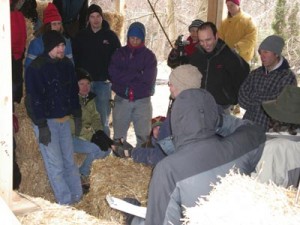 So what would an alternative revolutionary decisionmaking process look like, you ask? To begin with, a fundamental shift from competition to cooperation. This does not mean to do away with competition. Ask any team coach what the key to victory is and you will be told “cooperation within the team”. The fundamental shift is the use of competition not to win, which is just a polite way of saying to dominate, to beat, to destroy, to kill the opposition; but rather, to use competition to do or be the best. In addition, the cooperative spirit recognizes that it is not necessary to attack another’s efforts in order to do your best; in fact, the opposite is true. In most situations, helping others do their best actually increases your ability to do better. And in group interactions, the cooperative spirit actually allows the group’s best to be better than the sum of its parts.
So what would an alternative revolutionary decisionmaking process look like, you ask? To begin with, a fundamental shift from competition to cooperation. This does not mean to do away with competition. Ask any team coach what the key to victory is and you will be told “cooperation within the team”. The fundamental shift is the use of competition not to win, which is just a polite way of saying to dominate, to beat, to destroy, to kill the opposition; but rather, to use competition to do or be the best. In addition, the cooperative spirit recognizes that it is not necessary to attack another’s efforts in order to do your best; in fact, the opposite is true. In most situations, helping others do their best actually increases your ability to do better. And in group interactions, the cooperative spirit actually allows the group’s best to be better than the sum of its parts.
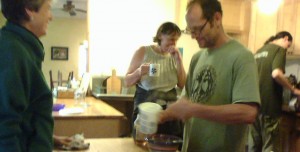 Cooperation is more than “live and let live”. It is making an effort to understand another’s point of view. It is incorporating another’s perspective with your own so that a new perspective emerges. It is suspending disbelief, even if only temporarily, so you can see the gem of truth in ideas other than your own. It is a process of creativity, synthesis, and open-mindedness which leads to trust-building, better communication and understanding, and ultimately, a stronger, healthier, more successful group.
Cooperation is more than “live and let live”. It is making an effort to understand another’s point of view. It is incorporating another’s perspective with your own so that a new perspective emerges. It is suspending disbelief, even if only temporarily, so you can see the gem of truth in ideas other than your own. It is a process of creativity, synthesis, and open-mindedness which leads to trust-building, better communication and understanding, and ultimately, a stronger, healthier, more successful group.
The next step is the development of an organization which is non-hierarchical or egalitarian. A corresponding structure would include: participatory democracy, routine universal skill-building and information sharing, rotation of leadership roles, frequent evaluations, and, perhaps most importantly, equal access to power. Hierarchical structures are not, in and of themselves, the problem. But their use concentrates power at the top and, invariably, the top becomes less and less accessible to the people at the bottom, who are usually most affected by the decisions made by those at the top. Within groups (and within society itself), there becomes a power elite. In an egalitarian structure, everyone has access to power and every position of power is accountable to everyone. This does not mean that there are no leaders. But the leaders actively share skills and information. They recognize that leadership is a role empowered by the entire group, not a personal characteristic. A group in which most or all of the members can fill any of the leadership roles cannot easily be dominated, internally or externally.
The last and most visible step towards revolutionary change in group process is the manner in which members of the group interact with each other. Dominating attitudes and controlling behavior would not be tolerated. People would show respect and expect to be shown respect. Everyone would be doing their personal best to help the group reach decisions which are in the best interest of the group. There would be no posturing and taking sides. Conflicts would be seen as an opportunity for growth, expanding people’s thinking, sharing new information, and developing new solutions which include everyone’s perspectives. The group would create an environment where everyone was encouraged to participate, conflict was freely expressed, and resolutions were in the best interest of everyone involved. Indubitably, this would be revolutionary.
You can contact C.T. Butler at:
Food Not Bombs Publishing
7304 Carroll Ave #136
Takoma Park, MD 20912
website: www.consensus.net
Telephone: 1-800-569-4054
Order copies of his books, On Conflict & Consensus and Consensus for Cities on the above site. His book, Food Not Bombs: How to Feed the Hungry and Build Community, is available on Amazon.com.
Please join our Hippie Chick Diaries fan page on Facebook!
Help Spread Consensus Decision-Making Through Indymedia and the World Social Forum in Dakar, Senegal
***PRESS RELEASE***PLEASE CIRCULATE***
The opportunity of a lifetime is before me. I’m writing for support of a project to train members of media cooperatives and collectives around the world in consensus decision-making and community building.
Consensus author/trainer C.T. Lawrence Butler and I have been working with organizers to structure an event leading up to 2011’s World Social Forum in Dakar, Senegal. The event is called the Indy Media Convergence, a two-week period when members of Independent Media Center, aka Indymedia or IMC, gather to create consensus-based community and learn new skills in communication, media and journalism. Afterwards, the members remain in Dakar to cover the World Social Forum, from perspectives free of corporate interests.
 Activist C.T. Lawrence Butler is co-founder of Food Not Bombs, the international network of local organizations feeding homeless and redistributing edible food that would otherwise go to waste. Local Food Not Bombs groups operate by consensus, and C.T. has led workshops in the US, Europe and Africa, showing thousands that horizontal structure is possible. He’s the author of the definitive On Conflict and Consensus, as well as Consensus for Cities and Food Not Bombs. He has been arrested over fifty times protesting war, nuclear power and exercising his right to give away food.
Activist C.T. Lawrence Butler is co-founder of Food Not Bombs, the international network of local organizations feeding homeless and redistributing edible food that would otherwise go to waste. Local Food Not Bombs groups operate by consensus, and C.T. has led workshops in the US, Europe and Africa, showing thousands that horizontal structure is possible. He’s the author of the definitive On Conflict and Consensus, as well as Consensus for Cities and Food Not Bombs. He has been arrested over fifty times protesting war, nuclear power and exercising his right to give away food.
 I, Wren Tuatha, am a writer/filmmaker/facilitator who has lived and practiced consensus decision-making at Heathcote Community for fifteen years. I’m Artist-in-Residence there, and am currently writing a book, Consensus for Kids, based on twenty-five years in alternative education and seven years designing and facilitating Heathcote’s Open Classroom. I am a facilitator/consultant to Intentional Communities, helping established and forming communities prioritize what I call “social technologies”—consensus, conflict resolution, ZEGG Forum, etc. My website, HippieChickDiaries.com, is a first person account of life in Intentional Community, or, as I like to put it, “Wren Tuatha’s complicated adventures in simple living….”
I, Wren Tuatha, am a writer/filmmaker/facilitator who has lived and practiced consensus decision-making at Heathcote Community for fifteen years. I’m Artist-in-Residence there, and am currently writing a book, Consensus for Kids, based on twenty-five years in alternative education and seven years designing and facilitating Heathcote’s Open Classroom. I am a facilitator/consultant to Intentional Communities, helping established and forming communities prioritize what I call “social technologies”—consensus, conflict resolution, ZEGG Forum, etc. My website, HippieChickDiaries.com, is a first person account of life in Intentional Community, or, as I like to put it, “Wren Tuatha’s complicated adventures in simple living….”
 IMC is a network of collectives, established in 1999 around the anti-WTO protests in Seattle. Going to Dakar, IMC will be covering the World Social Forum, a series of events in answer to the capitalist World Economic Forum. IMC organizers are committed to members learning interpersonal communication and inclusive decision-making, as well as practical media skills, such as building radios and transmitters.
IMC is a network of collectives, established in 1999 around the anti-WTO protests in Seattle. Going to Dakar, IMC will be covering the World Social Forum, a series of events in answer to the capitalist World Economic Forum. IMC organizers are committed to members learning interpersonal communication and inclusive decision-making, as well as practical media skills, such as building radios and transmitters.
To organizers, the point is really the process. “If we don’t have consensus training, then it’s just a technical workshop,” says Sphinx, a documentary filmmaker and IMC organizer from Cameroon, now living in exile in the US. Indymedia’s mission incorporates consensus principles but many of the over 200 chapters need training.
During the 2011 Convergence, over 100 Africans, as well as members from South America, the US and Europe will experience consensus, as well as Open Space Technology, and possibly ZEGG Forum, an often emotional group process in which communities and their members view and get past some blocks that may interfere with their common work. We will also facilitate cultural sensitivity work to help the diverse community come together through understanding.
Now that our organizing structure has been adopted by the group, we need funding to make the trip. We need to raise $11000 for our consensus work in Dakar.
DESCRIPTION AMOUNT
WSF reg & on ground expenses, CT & WT 1000
airfare for CT & WT 5000
CT home expenses 1500
WT home expenses 1500
100 copies of On Conflict and Consensus 1500
emergencies & miscellaneous 500
11000
I became acquainted with GEO’s Michael Johnson through several ZEGG Forum facilitator trainings at Ganas Community. And I’m excited that he and I are beginning to collaborate in helping worker-owned cooperatives continually develop their social technology skills, so that existing horizontal structures don’t have to revert to hierarchy, and so that all members can share power and be heard in decision-making. This breeds a profound sense of community, and streamlined energy to act on and realize our dreams.
IMC organizers like Sphinx want to use the consensus community at the Convergence to inspire participants to go home and create a handful of sustained, working models of consensus in Africa.
Through my site and networking, I’ve advanced my goals of putting Intentional Community on everyone’s list of “top ten ways to go green,” and helping communities, landed, work or affinity based, to realize that social technologies—the ability to make decisions that include every member’s buy-in, skills at arriving beyond conflict by listening and understanding the other, not just delivering one’s own point—are as important to a community’s success as having the greenest building idea or innovative Permaculture garden design.
An upcoming book C.T. and I are working on develops this idea. Often people tell us that they tried consensus or saw it in action somewhere and they decided that it was too slow or didn’t really work. We agree that consensus done poorly looks just like that, and it isn’t satisfying or effective. We observe that people try to apply the basic concepts of consensus but have problems if they are neglectful or unaware of what we are coming to call the body and the soul of consensus.
When I was in film school, instructors would admonish us to learn the rules first, then feel free to break them. In the same way, consensus has a specific structure, or “body,” that should be learned, not because rules are rules, but because getting them deeply will inform your choices when you go to improvise. We see well-meaning activists who are quick to shed the saddle but then don’t know how to ride the horse.
Also, horizontal structures such as consensus are true paradigm shifts, not just changing Robert’s Rules of Order for Butler’s. Over time practitioners shed old habits, assumptions and attachments and form new curiosities, learning to trust the group. But in the meantime, consensus decision-making with members who are still trying to debate or practice old styles of leadership can be hard. We think of the paradigm shift individuals and groups go through as the “soul” of consensus.
So, as you might imagine, it is hugely important to the Dakar Indy Media Convergence that the architects of the “body” be there to help community members discover the “soul” of their community’s process.
What can you or your organization contribute? We are asking for donations totaling $11,000 to fund our travel and facilitation efforts, as well as providing students with books. We plan to blog daily from the Convergence and the WSF, as connectivity allows.
If you should wish your contribution to be tax deductible, we can work through Indymedia’s finance committee, a non-profit.
Please contact Wren Tuatha, curiocoast@comcast.net, 410-458-2310 or C.T. Butler, ctbutler@together.net, 301-586-2560 for details.
Thank you so much for partnering with us in this work that can help all groups deepen the difference they’re trying to make in the world.
Wren, Heathcote Community, November 11, 2010
Mother Earth Harvest Fair
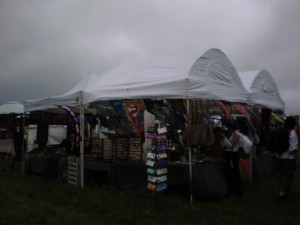 Alright rain, we have a deal. You’re gonna hold off until I’m loading my last box at the end of the day.
Alright rain, we have a deal. You’re gonna hold off until I’m loading my last box at the end of the day.
I know I wrote extensively at the end of this year’s Fairie Festival about weather being my white whale, but we’ve made friends now, right?
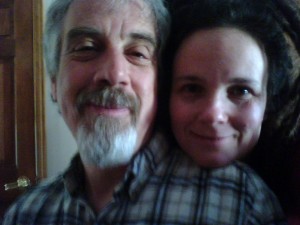 C.T. Butler and I are up past midnight finishing posters and making lists for the Intentional Community info & speakers’ booth at Spoutwood Farm’s Mother Earth Harvest Fair. He will speak on Formal Consensus and I’ll do readings from the website. Sociocracy author John Buck will also be speaking, on Leading in Community. Actually, his share will be very interactive. I can’t wait!
C.T. Butler and I are up past midnight finishing posters and making lists for the Intentional Community info & speakers’ booth at Spoutwood Farm’s Mother Earth Harvest Fair. He will speak on Formal Consensus and I’ll do readings from the website. Sociocracy author John Buck will also be speaking, on Leading in Community. Actually, his share will be very interactive. I can’t wait!
Heathcote Earthings will be selling our fair trade wares and jewelry right next to the Community booth. Regina will be holding down the fort there. She’s going to love all the new pendants and earrings Rita Jane and I made during this year’s York Fair. Lots of natural gift ideas!
Thanks in advance to Heathcote intern Sariel and member John for helping with the booth, and to Rob, Lucy and all the Spoutwood crowd for your patience, flexibility and vision! Well, time to get a few hours’ sleep before I’m a slave to the to-do lists for another day!
Hot Tub Tribe
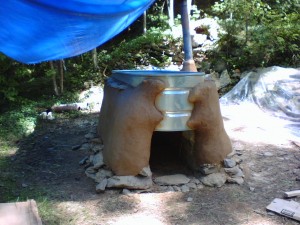 After weeks of working long hours at the fairs, I got to reconnect with my tribe in a sweet way at last night’s hot tub party!
After weeks of working long hours at the fairs, I got to reconnect with my tribe in a sweet way at last night’s hot tub party!
Our wood fired cob hot tub, with two beaver profiles sculpted at the firing end, was made as part of a workshop. Gotta love education at Heathcote! I have other workshop ideas, like How to Give Wren a Much-Deserved Massage, and Preparing and Serving All of Wren’s Favorite Comfort Foods for Maximum Consumption Before She Passes Out in Bliss… I strongly feel that education should be kept relevant.
Heathcote Community members have been engaged all weekend in a retreat lead by students in Laird Schaub and Ma’ikwe Ludwig’s two year facilitation course. We are tackling the question of how to support our education programs while also maintaining Heathcote as a relaxing, safe home for our residential members.
Our regular hot tub parties are a shiny way to pamper ourselves and deepen our shared quality of life. Last night, Paul tended the fire for several hours until the water temperature was just right. We arrived in waves and soaked five at a time, making jokes about the lobster not knowing it’s boiling alive. The kids were in and out, one teenage host served brownies, judging herself harshly on the results of her baking. Nick arrived with his guitar and the chords of The White Album started wafting up with the campfire smoke.
In the deep darkness, while the moon was still tangled in the trees, I could only see my tribe members in silhouette. I noticed that I wanted to take some photographs but I knew my cameraphone wouldn’t have done those silhouettes justice. While I was aside cooling off, I couldn’t quite hear what people were discussing. They could have been any community, at any time in history. A fire, a soak, some music, the woods, we were every tribe while we were being ourselves.
We chatted. We sweated. We hydrated. We rotated in and out of the hot tub and left in waves, as we had come.
And now, the next morning, it is time for me to return to the retreat meetings, the head space and this specific moment.
